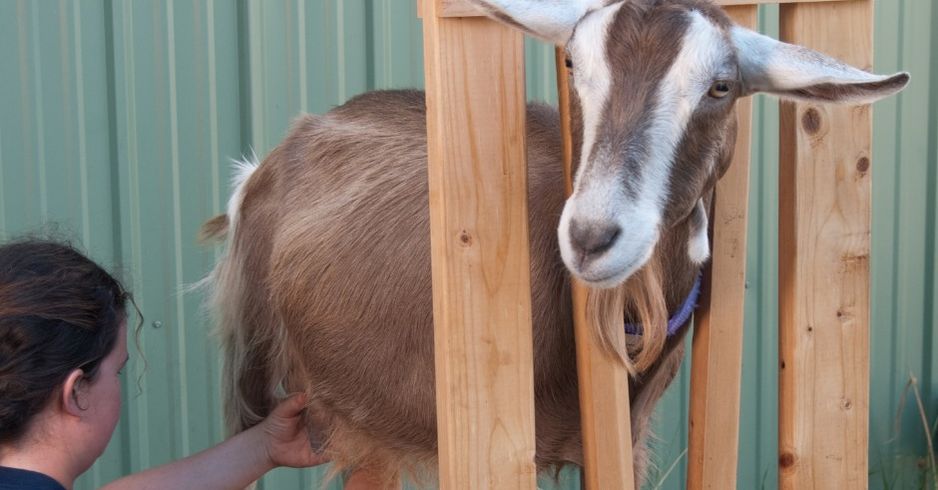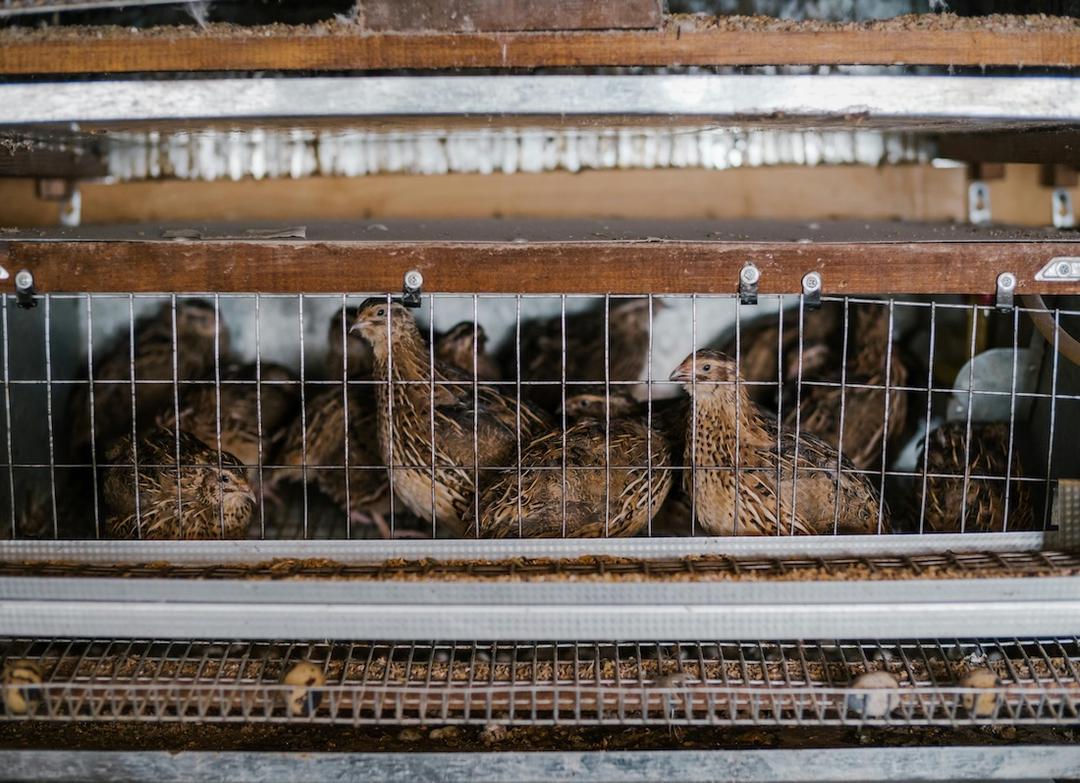More than cheese—goats are teachers, landscapers, and drama queens.
You spot them before you even park the car—standing on hay bales, old spools, or the roof of a shed, staring at you like they’re running the place. Goats have a way of making themselves the center of attention, and on many small farms, that’s exactly what they are.
But why? Why do goats show up everywhere—from dairy farms and mobile petting zoos to community gardens and classroom visits?
Most people assume it’s the milk. Or maybe the cuteness. And sure, both play a role. But the real answer is bigger.
Goats are multi-taskers. They clear brush, fertilize soil, entertain school groups, and teach kids (and adults) about food systems and animal care. They’re hardy, expressive, low-maintenance by livestock standards—and full of personality.
In this post, we’ll look at what makes goats such a smart choice for small farms—and why families, teachers, and first-time visitors keep falling for them.
Oh, and one more thing: They’re way more dramatic than you think.
🐐 The Many Roles of the Humble Goat
Goats may be small, but they’re surprisingly versatile. On many Texas farms, they’re not just livestock—they’re employees.
🧀 Milk & Dairy Production
Goat milk is a gateway for many first-time farmers. It’s easier to digest than cow’s milk, and ideal for making small-batch cheese, kefir, yogurt, and even soap. A well-fed dairy goat can produce up to a gallon of milk a day—plenty for personal use or farmstand sales.
🧑🌾 Land Clearing & Brush Control
Goats are nature’s weed-eaters. They can clear poison ivy, underbrush, and invasive plants from areas where tractors can’t reach. On some Delve partner farms, goats are used to manage fence lines and reduce fire risk—no fuel required.
👩🏫 Education & Field Trips
Few animals are as good with kids as goats. Their curious, calm nature makes them ideal for teaching about digestion, sustainability, and animal care. Many farms find that goats help even the shyest students open up and engage.
🐐 Petting Zoos & Outreach
Gentle, bottle-raised goats often appear at mobile events, birthday parties, and libraries. They’re approachable even for toddlers and nervous first-timers. One Delve farm brings a goat named Chaos who likes to ride in the ATV with the farmer—earning laughs and loyalty from kids and adults alike.
🌱 Manure & Soil Health
Goat droppings are dry and easy to compost, making them excellent for small-scale fertility cycles. They enrich soil without the smell or mess of larger livestock.
Goats earn their keep—and then some.
🛠️ Why They Work So Well for Small Farms
For small farms—especially those just getting started—goats check a lot of boxes that larger livestock don’t.
🐄 They need less land than cattle.
Goats don’t require huge pastures. With proper rotation and fencing, they can thrive on just a few acres—making them ideal for small, suburban, or urban-edge farms.
🌾 Their feed needs are lower.
Compared to pigs or cows, goats are more efficient grazers and browsers. They’ll eat scrub, weeds, and rough forage that other animals ignore. That helps reduce feed bills and makes better use of marginal land.
🌎 They adapt to a wide range of climates.
Hardy breeds like Nubians, Boers, and Kikos do well in Texas heat and humidity. Many small farmers intentionally choose breeds that can thrive with minimal intervention.
👨👩👧 They’re a manageable size.
Goats are big enough to produce real output (milk, meat, manure), but small enough to be handled safely by individuals or families. For solo farmers, that makes daily care much more feasible.
🚐 They’re mobile-ready.
Goats are easy to transport for events, school visits, and community programming. Unlike many livestock, they tolerate car rides and adapt quickly to new surroundings.
No surprise that many Texas farms start with goats. They’re flexible, forgiving, and functional—without requiring a large-scale ranch to support them.
🧠 They’re Smart, Social, and Occasionally Unhinged
If you’ve ever locked a goat pen… and then found the goat outside the pen… you’re not alone.
Goats are smart—sometimes problematically so. They’ve been known to unlatch gates, climb fences, knock over feed bins, and sneak into places they’re definitely not supposed to be.
They’re also social. Goats form tight-knit groups, establish pecking orders, and aren’t shy about expressing their moods. Their vocalizations and body language make them feel oddly human—sometimes bossy, sometimes goofy, sometimes just along for the ride.
They’ll let you know when it’s dinnertime, when you’re late, and when they disapprove of your fashion choices.
One Delve farm has a goat named Chaos who likes to climb into the ATV and ride around with the farmer. Visitors still talk about it after the tour’s over.
That’s the thing about goats: they leave an impression. They stare into your soul, climb on the nearest object (including you), and inject real personality into the farm experience.
And while they may frustrate the farmers with their antics, they’re gold for guests. Whether it’s a child meeting a farm animal for the first time or an adult taking selfies with a new four-legged friend, goats have a way of stealing the show.
Just don’t turn your back on them. They’re probably plotting something.
👩👧👦 Why Families, Teachers, and Homeschoolers Love Them
Goats are more than just funny farm animals—they’re a secret weapon for hands-on learning.
For teachers and homeschoolers, goats offer direct connections to science, sustainability, and emotional development. Children can observe body systems, compare breeds, learn how ruminants digest their food, and even explore how milk becomes cheese or soap. It’s a full-spectrum biology lesson—delivered with bleats and a side of chaos.
But goats also teach something less tangible: empathy. They’re expressive and easy to bond with, making them an ideal “first animal” for nervous or curious kids. Bottle-raised dairy goats in particular are gentle, patient, and comfortable being touched, brushed, or even led on a leash.
Many families also appreciate that goats tend to be part of everything on a small farm. From grazing rotations to composting to animal care routines, they offer windows into how farms function as ecosystems. That makes them especially valuable for field trips that go beyond petting zoos to offer real agricultural learning.
💡 Want to visit a real working goat dairy? This North Texas field trip offers hands-on learning focused on goat care, milking, and sustainable farm life.
Some farms even welcome sensory-friendly groups or offer slower-paced visits for neurodivergent children. With the right setting, goats can help build comfort and connection in a way that’s hard to replicate.
If you’re looking for an animal that’s both lovable and educational—goats deliver.
🧺 What You Can Learn From a Goat (Not Just About Them)
Spending time with goats isn’t just about learning about farming—it’s a way to learn through it.
🧑🌾 Daily Routine & Responsibility
Goats need consistent care: feeding, watering, hoof checks, clean bedding, and basic health monitoring. For kids (and adults), that routine builds a real sense of responsibility and attention to detail.
🥛 Food Systems in Action
Seeing how milk is collected, filtered, and transformed into food or skincare products helps demystify where things come from—and makes store-bought items feel a little less abstract. Some farms even offer DIY cheese-making or soap classes tied to their goats.
🌾 Sustainable Land Use
Goats are often part of a broader regenerative system. Visitors can learn how they fit into pasture rotation, composting, and holistic land management. It’s farm ecology, live and unscripted.
🤯 Group Dynamics & Conflict Resolution
Goat herds have their own rules, leaders, and pecking orders. Watching them navigate social tensions (with minimal bloodshed) can spark unexpected conversations about behavior, boundaries, and cooperation.
There’s a reason so many small farms invite guests to meet their goats. It’s not just for the photos—though those are great, too. Goats are one of the most accessible ways to understand how real farms work.
🕯️ Looking for a deeper dive? This North Texas experience blends a private goat farm tour with hands-on candle making and stories from a veteran-turned-farmer.
🧭 Goats Earn Their Keep (and Then Some)
So—why do so many small farms have goats?
Because they show up, day after day, in more ways than one. They provide milk, clear land, build soil, teach kids, charm visitors, and keep the whole operation interesting.
They don’t need much—but they give a lot. And in return, they help people connect with where food comes from, how farms function, and why animals matter.
They’re not just livestock. They’re teachers, land managers, companions, and conversation starters.
Ready to meet some working goats for yourself?
Explore our Texas goat farm experiences for families, school groups, and curious visitors.







